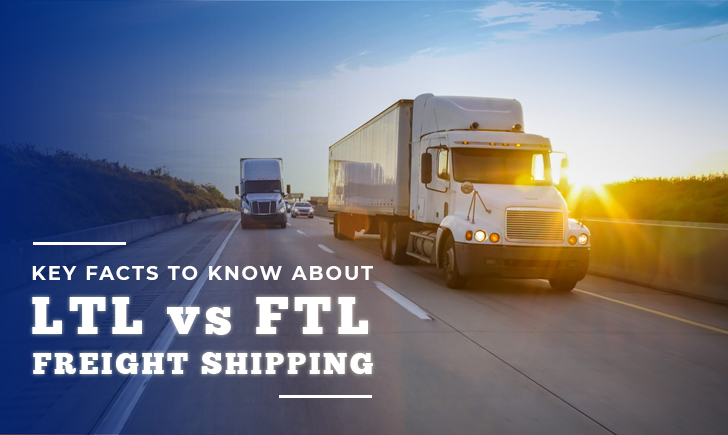When shipping out goods, you will be presented with a lot of options. Among them are LTL and FTL shipping. If you’re not familiar with the different shipping methods available, you might get confused and find it hard to decide which one is suited to your needs.
Whether your business has small or big requirements when it comes to shipping, here’s an article that presents some of the key facts you need to know about LTL vs FTL freight shipping.
LTL vs FTL Freight Shipping Explained
In choosing the right freight shipping option, you take into consideration factors such as shipment size, weight, classification, and delivery time. These are also some of the variables that differentiate LTL and FTL freight shipping and play a big role in getting a high level of service from courier companies.
LTL Shipping
Also referred to as Less-than-Truckload shipping is a shipping option that allows multiple shipments to be on the same trailer. It involves shipping loads between 150 to 15,000 lbs and up to 12 pallets only. LTL shipping doesn’t use a courier’s freight exclusively as a truck if filled to its capacity by combining different shipments. Usually, this is the most suitable shipping option for small businesses.
FTL Freight Shipping
FTL stands for Full Truckload Freight and is most suitable for those with shipments large enough to fill an entire truck. With this type of freight shipping, you will have exclusive use of the freight as your shipment will occupy its full capacity. FTL freight shipping usually exceeds 10,000 lbs with 12 or more pallets. It is a cost-effective choice for companies with cargos that can fill a truck.
The Key Differences
- Cost-Savings – You can reduce the cost of your shipment with LTL shipping as you’ll only pay for the space that your shipment occupies instead of the whole truck.
- Transit Times – FTL freight shipping has a faster delivery time as it heads straight to the receiver. As for LTL shipping, different stops have to be made so the delivery date may actually vary.
- Handling and Exposure – With LTL shipping, your shipment will be loaded and unloaded several times before it reaches its destination. Unlike in FTL freight shipping, your shipment is basically taken from point of origin to destination.
ALSO READ: HOW TO CHOOSE THE BEST TRUCKING COMPANY IN THE PHILIPPINES FOR YOUR BUSINESS
LTL and FTL Freight shipping both have their advantages and can offer the shipping support that your business needs. Whether you’ll be choosing LTL or FTL freight shipping, it is important to find a courier company you can trust like Worklink Services, Inc. For over 20 years, we have been helping small and big businesses in the safe and cost-efficient transport of their goods. Learn more about our services to know how we can help you.


